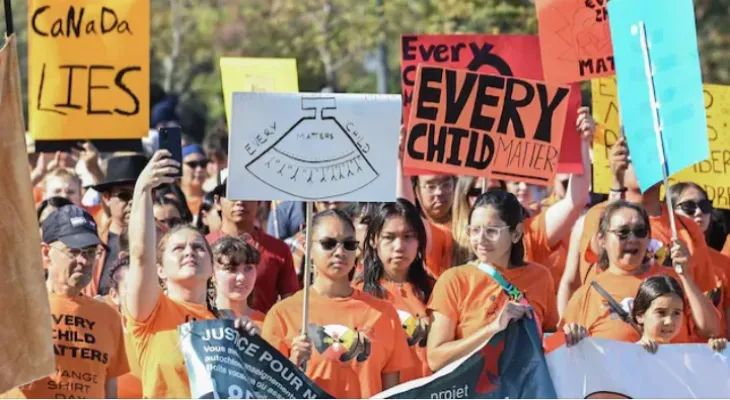Search here
Newspaper
Search here

Arab Canada News
News

Published: October 24, 2023
The federal court has approved the largest proposed settlement in the country’s history, recognizing the harm suffered by First Nations children. As a result, Ottawa will pay more than 23 billion dollars to compensate Indigenous children and their families who have suffered from chronic underfunding of child protection services.
The 23.4 billion dollars in compensation goes to more than 300,000 children who were removed and separated from their communities and families. The settlement also includes an allocation of 20 billion dollars to reform the child welfare system.
This also marks the culmination of a long battle initiated in 2007 by Cindy Blackstock, the executive director of the First Nations Child and Family Caring Society. She rushed to express her happiness about the federal court’s decision on social media shortly after it was announced.
It is noted that, after nine years of Blackstock's request, the Canadian Human Rights Tribunal (2016) ruled that Canada discriminates against First Nations children due to disparities in the funding of child protection services inside and outside reserves.
This tribunal also concluded that First Nations children suffer negative consequences because of the services provided by the government, and in some cases, they are denied those services.
It is worth mentioning that Ottawa did not announce the details of the compensation agreement for individuals who were discriminated against by the child protection system before the year 2022. At that time, the Canadian Human Rights Tribunal rejected the Canadian government's proposal.
The Human Rights Tribunal found that the agreement did not meet the required standards because it excludes some children, particularly those who were removed from their homes and placed in environments not funded by the federal government, and the agreement does not guarantee a compensation of 40,000 dollars for each child.
Last April, the Assembly of First Nations (AFN) and the First Nations Child and Family Caring Society proposed the agreement that was confirmed today by the federal court.
On another note, Blackstock emphasizes that problems still exist in the child protection system, noting that First Nations children living on reserves still face inequities in accessing healthcare, and Ottawa needs to make more efforts to protect them.
Blackstock also stresses that it must be ensured that the Government of Canada treats children fairly, “not just today, but tomorrow and the day after and in the future.”
The Assembly of First Nations also called on the country’s leader to apologize for discrimination and underfunding in the child welfare system.
Interim Assembly President Joanna Bernard stated: “The public apology from Prime Minister Justin Trudeau and his acknowledgment of the devastating impacts caused by the federal child welfare program on many First Nations children and families is not only necessary but long overdue... A candid apology in the House of Commons symbolizes a step forward in the spirit of reconciliation and healing.”
For her part, Blackstock expresses her belief that victims deserve individual apologies for the harm they suffered, “but for the apology to be meaningful, the federal government must change the course of its relationships with First Nations peoples,” she said, adding “the best apology Canada can offer is to change its behavior and ensure that another generation of children is not harmed.”
Comments